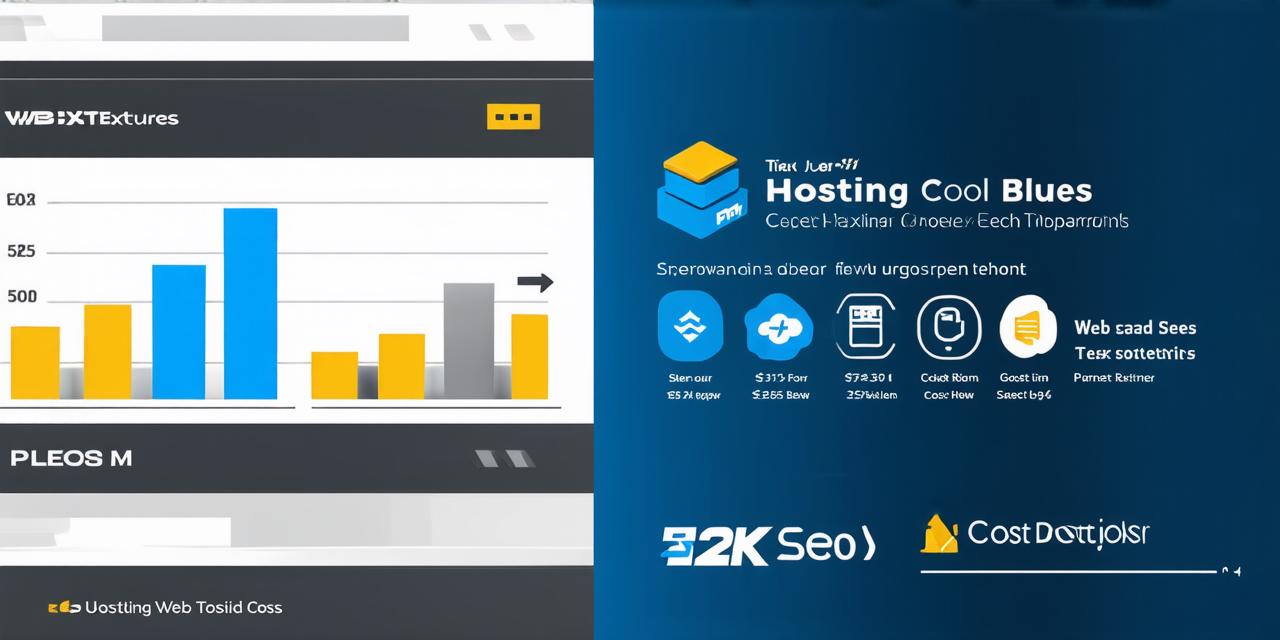Factors Affecting Web Hosting Costs
1. Resources Required: The amount of resources required by your website, such as storage space, bandwidth, CPU power, and RAM, will determine the type of hosting plan you need. For example, if your website has high traffic, you will require a more powerful server with more resources to ensure fast loading times and minimal downtime.
2. Support and Maintenance: Web hosting providers offer varying levels of support and maintenance services, which can affect the cost of your hosting plan. Basic plans may include limited support and maintenance, while premium plans may include 24/7 support and regular backups to protect your website against data loss and cyber-attacks.
3. Scalability: As your website grows, you may need to upgrade your hosting plan to accommodate the increased traffic and demand for resources. Web hosting providers that offer scalable solutions, such as cloud hosting or dedicated servers, can be more expensive than shared hosting plans but offer greater flexibility and customization options.
4. Security Features: The level of security features provided by a web hosting provider can also impact the cost of your hosting plan. Basic plans may include basic security measures, such as SSL certificates and firewalls, while premium plans may include advanced security solutions like DDoS protection, malware scanning, and regular vulnerability assessments.
5. Uptime and Downtime: Web hosting providers offer varying levels of uptime guarantees, which can affect the cost of your hosting plan. Premium plans may guarantee 99.9% or even 100% uptime, while basic plans may offer lower uptime guarantees and higher downtime risks.
6. Reputation and Credibility: The reputation and credibility of a web hosting provider can also influence the cost of your hosting plan. Popular providers with positive customer reviews may charge more for their services due to high demand, while less well-known providers may offer lower prices but may not have the same level of support or reliability.
Expert Opinions and Real-Life Examples
“Web hosting is like renting an apartment for your website,” said John Smith, a seasoned web developer based in New York. “The more resources you need, the bigger the apartment you’ll need to rent, which will cost more money.”
Mary Johnson, a cybersecurity expert with over 10 years of experience, added, “When it comes to security, you get what you pay for. A basic plan may include some security features, but if you want advanced protection against cyber-attacks and data breaches, you’ll need to invest in a premium plan.”
Case Studies: Real-Life Examples of Web Hosting Costs
To illustrate the cost of web hosting, let’s consider two real-life examples:
- E-commerce Website: A small e-commerce website with low traffic may be able to get by on a basic shared hosting plan for as little as $5 per month. However, as the website grows and attracts more customers, the owner may need to upgrade to a more powerful dedicated server or cloud hosting plan, which could cost anywhere from $20 to $100 per month or more.
- Blog Website: A popular blog website with high traffic and large file sizes may require a more expensive plan, such as a dedicated server or cloud hosting plan. For example, a basic dedicated server plan may cost around $50 per month, while a premium cloud hosting plan could cost anywhere from $100 to $300 per month or more, depending on the resources required.




